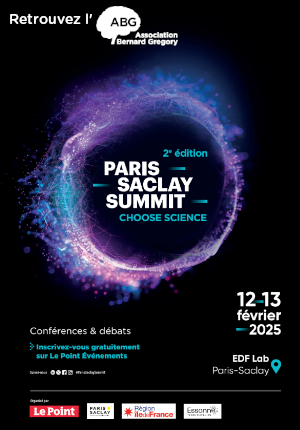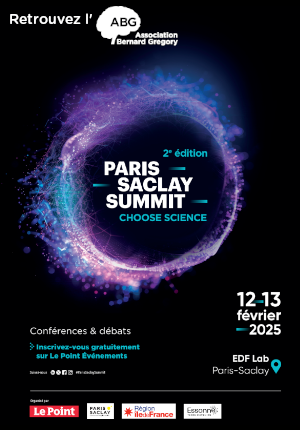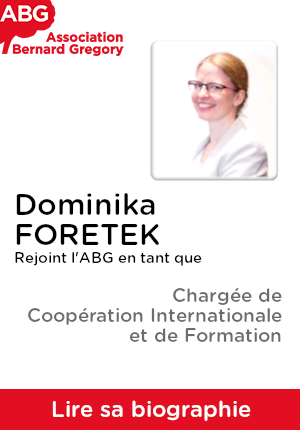L'écart en traduction : Compréhension, gestion et traitement des écarts linguistiques et culturelles par l'intelligence artificielle // The translation gap: Understanding, managing and processing linguistic and cultural gaps using artificial intelligence
|
ABG-128356
ADUM-60863 |
Sujet de Thèse | |
| 05/02/2025 |
Avignon Université
AVIGNON - France
L'écart en traduction : Compréhension, gestion et traitement des écarts linguistiques et culturelles par l'intelligence artificielle // The translation gap: Understanding, managing and processing linguistic and cultural gaps using artificial intelligence
- Informatique
human translation, stochastic machine translation, translation gaps, large language models
human translation, stochastic machine translation, translation gaps, large language models
human translation, stochastic machine translation, translation gaps, large language models
Description du sujet
Il est admis que la traduction est un processus complexe où les différences linguistiques, culturelles et contextuelles entre les langues source et cible peuvent engendrer des 'écarts'. Lexicaux, grammaticaux, syntaxiques ou culturels, ces écarts peuvent perturber la fidélité, la fluidité ou la pertinence du texte traduit. D'où la notion de création et d'art de la traduction.
Dans un contexte de mondialisation et de digitalisation croissante liée à l'intelligence artificielle, notamment via les systèmes de traduction automatique de type LLM, la thèse entend s'intéresser à la question scientifique : l'IA peut-elle être un outil pour la gestion des écarts de traduction ?
------------------------------------------------------------------------------------------------------------------------------------------------------------------------
------------------------------------------------------------------------------------------------------------------------------------------------------------------------
Translation is a complex process in which linguistic, cultural and contextual differences between the source and target languages can give rise to “gaps”. Lexical, grammatical, syntactic or cultural, these gaps can disrupt the fidelity, fluidity or relevance of the translated text. Hence the notion of creation and the art of translation.
In a context of globalisation and increasing digitalisation linked to artificial intelligence, in particular via LLM-type machine translation systems, the thesis aims to address the scientific question: can AI be a tool for managing translation gaps?
------------------------------------------------------------------------------------------------------------------------------------------------------------------------
------------------------------------------------------------------------------------------------------------------------------------------------------------------------
Début de la thèse : 01/10/2025
WEB : http://lia.univ-avignon.fr
Dans un contexte de mondialisation et de digitalisation croissante liée à l'intelligence artificielle, notamment via les systèmes de traduction automatique de type LLM, la thèse entend s'intéresser à la question scientifique : l'IA peut-elle être un outil pour la gestion des écarts de traduction ?
------------------------------------------------------------------------------------------------------------------------------------------------------------------------
------------------------------------------------------------------------------------------------------------------------------------------------------------------------
Translation is a complex process in which linguistic, cultural and contextual differences between the source and target languages can give rise to “gaps”. Lexical, grammatical, syntactic or cultural, these gaps can disrupt the fidelity, fluidity or relevance of the translated text. Hence the notion of creation and the art of translation.
In a context of globalisation and increasing digitalisation linked to artificial intelligence, in particular via LLM-type machine translation systems, the thesis aims to address the scientific question: can AI be a tool for managing translation gaps?
------------------------------------------------------------------------------------------------------------------------------------------------------------------------
------------------------------------------------------------------------------------------------------------------------------------------------------------------------
Début de la thèse : 01/10/2025
WEB : http://lia.univ-avignon.fr
Nature du financement
Précisions sur le financement
Contrat doctoral
Présentation établissement et labo d'accueil
Avignon Université
Etablissement délivrant le doctorat
Avignon Université
Ecole doctorale
536 Agrosciences et Sciences
Profil du candidat
- Étudiant possédant un Master 2 ou Diplôme d'école d'ingénieur en informatique, Spécialités Computational Linguistics, Traitement du Langage Naturel (NLP), IA ou Machine Learning
- Solides compétences en ingénierie informatique (Python, Linux, shell, git)
- Expérience attendue en Computational Linguistics, NLP et en Machine Learning, Deep Learning
- Connaissance des grands modèles de langage (LLM), ou IA générative en général
- Langues : anglais académique, la connaissance du français et/ou la maîtrise d'autres langues sera considérée comme un plus
La bourse de thèse fera l'objet d'un concours au sein de la FR Agorantic de l'université d'Avignon, avec une audition préalable du candidat retenu par les encadrants de thèse.
Pour postuler merci d'envoyer un mail à Fabrice Lefèvre (fabrice.lefevre@univ-avignon.fr) incluant : votre CV, une lettre de motivation avec votre positionnement sur les propositions d'études ci-dessous, d'éventuelles lettres de recommandation et vos relevés de notes.
Candidates for this position should have a master's degree in computer science, computational linguistics, or a related discipline. Experience with machine learning including deep learning and large language models is desired. The research will be conducted in French or English, but elementary reading in French is desirable. The thesis grant will be the subject of a competition within FR Agorantic at the University of Avignon, with a preliminary interview of the successful candidate by the thesis supervisors. To apply, please send an email to Fabrice Lefèvre (fabrice.lefevre@univ-avignon.fr) including: your CV, a covering letter stating your position on the study proposals below, any letters of recommendation and your transcripts.
Candidates for this position should have a master's degree in computer science, computational linguistics, or a related discipline. Experience with machine learning including deep learning and large language models is desired. The research will be conducted in French or English, but elementary reading in French is desirable. The thesis grant will be the subject of a competition within FR Agorantic at the University of Avignon, with a preliminary interview of the successful candidate by the thesis supervisors. To apply, please send an email to Fabrice Lefèvre (fabrice.lefevre@univ-avignon.fr) including: your CV, a covering letter stating your position on the study proposals below, any letters of recommendation and your transcripts.
26/05/2025
Postuler
Fermer
Vous avez déjà un compte ?
Nouvel utilisateur ?
Besoin d'informations sur l'ABG ?
Vous souhaitez recevoir nos infolettres ?
Découvrez nos adhérents
 MabDesign
MabDesign  TotalEnergies
TotalEnergies  ANRT
ANRT  Ifremer
Ifremer  CASDEN
CASDEN  ONERA - The French Aerospace Lab
ONERA - The French Aerospace Lab  CESI
CESI  ADEME
ADEME  Aérocentre, Pôle d'excellence régional
Aérocentre, Pôle d'excellence régional  Institut de Radioprotection et de Sureté Nucléaire - IRSN - Siège
Institut de Radioprotection et de Sureté Nucléaire - IRSN - Siège  MabDesign
MabDesign  Généthon
Généthon  Groupe AFNOR - Association française de normalisation
Groupe AFNOR - Association française de normalisation  PhDOOC
PhDOOC  SUEZ
SUEZ  Institut Sup'biotech de Paris
Institut Sup'biotech de Paris  Nokia Bell Labs France
Nokia Bell Labs France  Laboratoire National de Métrologie et d'Essais - LNE
Laboratoire National de Métrologie et d'Essais - LNE  Tecknowmetrix
Tecknowmetrix







